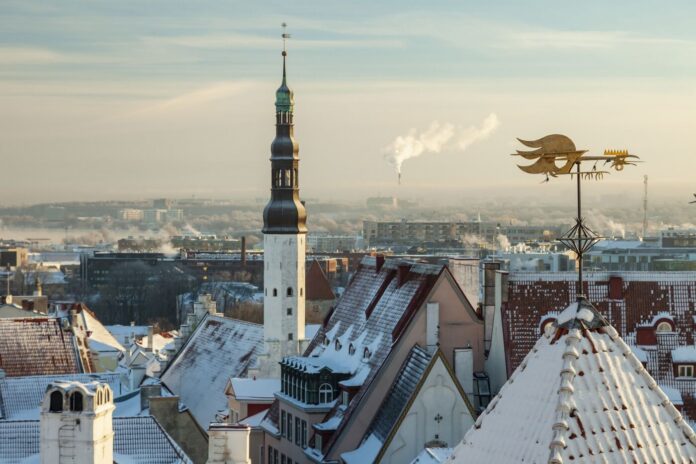Estonia’s economy struggled to break out of the European Union’s most sustained contraction as a drop in trade with the Nordic region and an energy shock spurred by Russia’s war in Ukraine take a toll, according to Bloomberg.
The Baltic nation of 1.3 million registered its seventh-straight drop in gross domestic product in the third quarter, declining 1.3% from the previous three months, the statistics office said Thursday. The figure is down more than 4% from its peak at the end of 2021, according to the Bank of Estonia.
The pain for the $38 billion economy has been compounded by a downturn among Estonia’s Nordic neighbors. Sweden fell into recession in the quarter and Finland reported a contraction as inventories dropped and households grappling with higher borrowing costs cut back on spending.
“In the past when Estonia has had an economic crisis, it has exited it thanks to exports getting back on their feet,” said Rasmus Kattai, head of economic policy and forecasting at the Bank of Estonia. “Now it is the exports that are in trouble. It’s going to be a long and difficult recovery.”
The economic storm has thrown Estonia into a fiscal bind. Prime Minister Kaja Kallas is still facing a budget gap after her coalition introduced a raft of tax hikes, budget cuts and public-sector layoffs. Estonia is determined to keep debt at the lowest level in the 27-member bloc, even as it bolsters defense spending to 3% of GDP.
That’s exacerbating the fallout from the war in Ukraine launched by Russia, Estonia’s vast neighbor to the east, and a price shock that sent inflation above 20%.
The opposition, already emboldened by a scandal involving deliveries made to Russia by a company previously co-owned by Kallas’s husband, has pounced. Polls show the premier’s ruling Reform party, which scored a solid election victory in March, falling behind conservative and far-right parties.
“In a situation where we feel a lot of resentment in society over these tax rises, I think the Finance Ministry has the right approach — that we think about whether we can fill this hole by saving instead of asking for more money from the taxpayer,” Kallas said earlier this month.
It’s an abrupt shift for Estonia. The country has billed itself as a home for digital innovation in eastern Europe, hosting billion-dollar startups such as Uber Technologies Inc. rival Bolt Technology OU and fintech groups like Wise Plc.
The European Commission forecasts that Estonia’s economy will contract by 2.6% this year, the EU’s deepest recession, while unemployment has risen to 7.3%, a level last seen during the pandemic. Fitch Ratings downgraded the country’s credit rating to A+ in July, Estonia’s first cut since the global financial crisis in 2009.
Trade has been upended by developments across the region, where a slumping Nordic real estate market, a drop in the value of the Swedish and Norwegian currencies and a jump in Estonian electricity costs has contributed to the downturn.
“A slump in demand from Scandinavian and German markets caused a decline in goods exports, which in turn led to a downturn in private investment,” Erste Group said about Estonia in a report on Monday.


